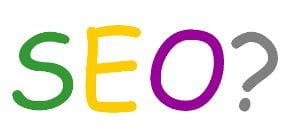eCommerce is an enormous growth area and for those of you about dip your feet and go online for the first time, this article aims to point out some of the initial SEO (Search Engine Optimisation) factors involved.
Many businesses, from start-ups to those already established with a bricks and mortar presence, are cognizant of the reach of the web and are going online to promote their business. Whether the goal is to sell products or market services, to do either effectively, the starting point has to be the Business Plan. This involves formulating an online marketing strategy and identifying website requirements.
Your website is a project with an IT component, and like any project, the requirements can prove to be the most problematic part. Many IT projects fail because they don’t meet requirements that weren’t specified in the first place. It sounds obvious doesn’t it? So, the design of your website should start with a Functional Specification which draws on a business analysis of the needs and goals of the website.
For most, one of the goals will be to reach an audience via organic search. This could be a search on your brand name or your product. When you get ‘googled’, you want to be found! For some, the design will be a trade-off with the
Factors affecting search friendliness
So, below is a list of things to think about when you decide to go online:
1. Domain Name
Your domain name is critical. A domain name that encompasses your keywords will be much more easily found than one which bears no relation to your business.
Also, a domain name can be used effectively for geo-targeting.
For example, www.partyponiesireland.com has the keywords in the domain name and will rank better for Ireland than www.partyponies.com
2. TLD
Top Level Domain name or country code. This is the .com or .ie part of the domain name. All other things being equal, a domain name with a .ie will rank better for a target market of Ireland than a .com.
Anyone can register a .com, but .ie names are subject to restrictions, generally you have to be a legitimate registered business. For this reason, a .ie may confer more trust amongst visitors and is definitely recommended for those targeting Ireland only.
3. Location of hosting
The country where your website is physically hosted on a server is a factor in how search engines view the geographic relevancy of your site. For Google, a .ie domain hosted in Ireland will default to appearing in search results for Ireland. A .com hosted in Netherlands will default to that country’s search results. However, you can indicate to Google your target country using Google’s Webmaster Tools.
4. URLs
Have your developer create search-friendly URLs (page names) which include your keywords.
5. Technical
- Flash is popularly used for graphics on websites and can create very stylish websites. Unfortunately, search engines don’t read Flash, so you need to balance the graphic design against content that search bots can crawl and index.
- Load speed is now a ranking factor with Google. If your site looks cool and zeitgeist, but is slow to load pages, then Google may rank it lower as it believes visitors won’t wait around. Your web developer can combine JavaScript and CSS files to speed up the load time.
- The technical infrastructure of your site is important to allow search bots to crawl it successfully. Ideally, your site should validate to XHTML and CSS standards. See validator.w3.org
Are you about to create a new website? If so, is there anything else you think should be on this list?


